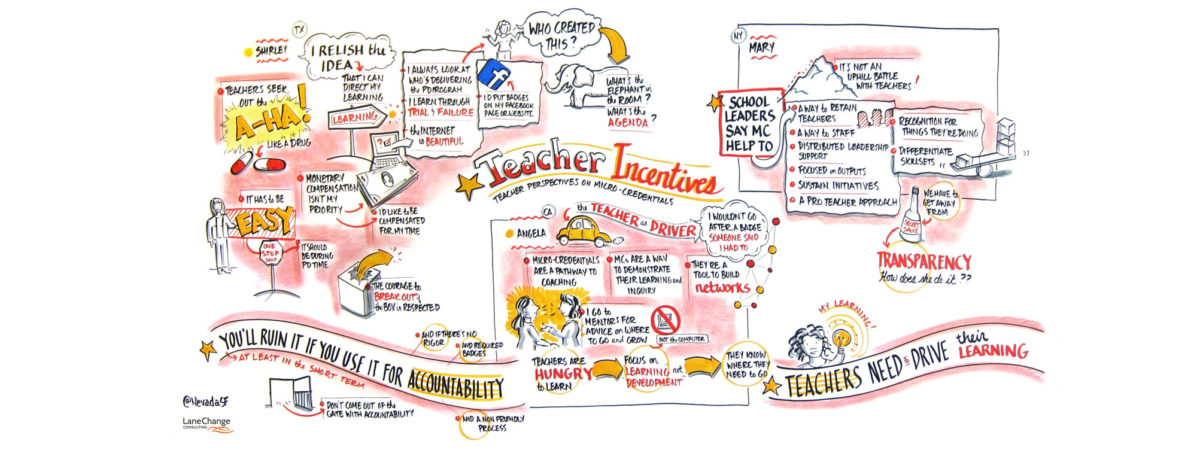
“Teachers are hungry to learn. If we focus on learning and development, teachers know where they need to go.”Angela
Teacher and Instructional Coach
San Jose, California
We recently discussed the challenges in professional learning with a few educators and how micro-credentials – which recognize educators for the skills and competencies they gain throughout their careers – can be a tool to personalize professional development. These teacher perspectives, some of which you can see below, are crucial. We can’t begin to improve professional development without first asking teachers what’s most engaging for them. As one educator put it, “Teachers are hungry to learn. If we focus on learning and development, teachers know where they need to go.”
“I relish the idea that I can direct my own learning.”Shirley
Elementary school teacher
Austin, Texas
The need and demand for personalized professional development is growing. And there are a tremendous number of learning opportunities for teachers, both traditional and informal. However, our systems must acknowledge this growing portfolio of places where educators gain these skills as well as the new ways they can recognized for their ongoing professional growth. Micro-credentials bridge the gap between where professional learning happens and the way teachers earn recognition for that learning.
#mc4pd @MJMadda: Big takeaway: Teachers need to drive their learning. pic.twitter.com/9HstezeYFT
— Angela Estrella (@am_estrella) January 30, 2015
Micro-credentials are “a tool to build networks.”Angela
Teacher and Instructional Coach
San Jose, California
Traditionally, educators have formed local, professional learning communities, commonly called “PLCs”, to support their growth and development. Micro-credentials make the pathways to professional learning easier to navigate. Because micro-credentials focus on discrete, demonstrable skills, they provide a snapshot of skills teachers have. And, when coupled with evidence of competency, micro-credentials support authentic mentoring opportunities within districts.
“Micro-credentials can help school leaders retain teachers, inform staffing decisions, distribute leadership, sustain initiatives, and offer a pro-teacher approach to professional development.”Mary
Former teacher, who now works for
teaching matters in New York
Micro-credentials can be a powerful analytical tool for educators because they are competency-based and provide invaluable information on personal progress toward professional learning goals. Further, micro-credentials can give school leaders an opportunity to acknowledge teachers for their successes and find paths to development for those who would like to do more and could potentially create pathways for teacher leadership and mentoring.
“When we trust teachers to identify their needs and create their own learning paths, I think we put respect back into the profession.”Angela
Teacher and Instructional Coach
San Jose, California
Micro-credentials offer educators the ability to select the learning opportunities most valuable for them. Providing educators with the opportunity to gain recognition for the skills they demonstrate every day and have mastered over the life of their careers will create a culture of respect and trust. Similarly, micro-credentials will cultivate a collaborative environment as teachers identify what they know and find other like-minded educators who are seeking the same skills.
To view a large version of the graphic recording, click here.
Would you like more information on how you can start incorporating micro-credentials into your professional learning plan? Click the link below to participate in our pilot. Or join the conversation by using #MC4PD or #DeeperLearning.